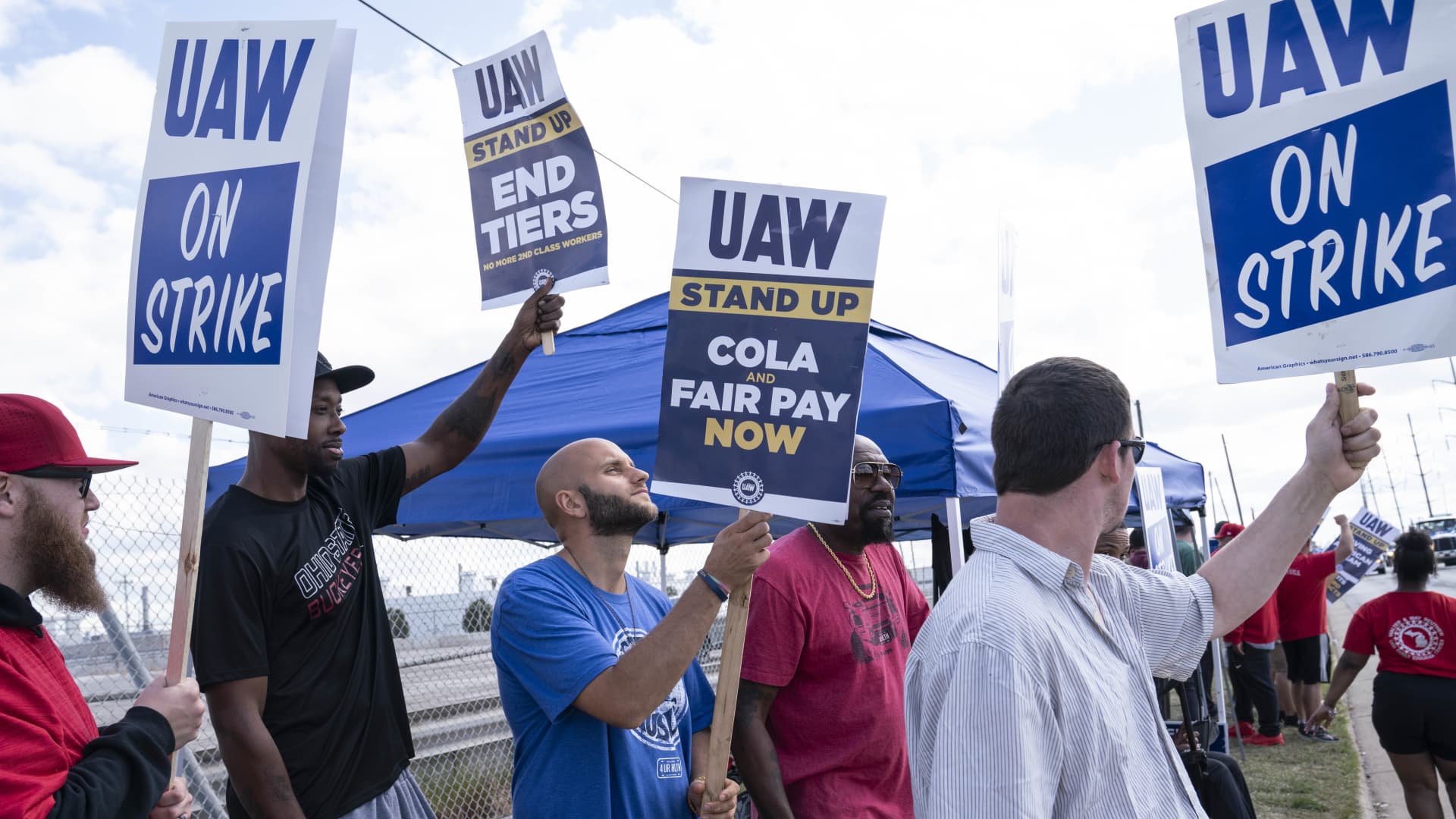DETROIT – The United Auto Workers is expanding strikes to 38 parts and distribution locations across 20 states for General Motors and Stellantis, UAW President Shawn Fain said Friday morning.
The union will not initiate additional strikes at Ford Motor, as the company has proven it’s “serious about reaching a deal,” Fain said during a Facebook Live.
“We still have serious issues to work through, but we do want to recognize that Ford is showing that they’re serious about reaching a deal,” said the outspoken union leader. “At GM and Stellantis, it’s a different story.”
Fain said the union and Ford have made progress on issues including eliminating some wage tiers, reinstating cost-of-living adjustments and an improved profit-sharing formula.
He also said the union won the right to strike over plant closures during the term of the deal as well as an immediate conversion of temporary, or supplemental, workers, with at least 90 days of employment upon ratification at the company.
Ford said the company is “working diligently with the UAW to reach a deal,” but “we still have significant gaps to close on the key economic issues.”
“In the end, the issues are interconnected and must work within an overall agreement that supports our mutual success,” Ford said in a statement Friday.
The strikes at the GM and Stellantis parts suppliers will add roughly 5,600 auto workers, including roughly 3,500 employees at GM, to the UAW’s ongoing strikes at the Detroit automakers.
Roughly 12,700 UAW workers went on strike a week ago GM’s midsize truck and full-size van plant in Wentzville, Missouri; Ford’s Ranger midsize pickup and Bronco SUV plant in Wayne, Michigan; and Stellantis’ Jeep Wrangler and Gladiator plant in Toledo, Ohio.
Many, including Wall Street analysts, expected the union to expand work stoppages to full-size truck plants of the Detroit automakers, which are crucial to the profitability of the companies.
UAW began targeted strikes after the sides failed to reach tentative agreements by the expiration of the previous contracts at 11:59 p.m. Sept. 14.
The expanded strikes come a day after The Detroit News Thursday night reported leaked messages involving UAW communications director Jonah Furman that raised questions about the union’s motives for the work stoppages.
In the undated private group messages, viewed by CNBC, Furman describes UAW’s strategy and targeted strikes as causing “recurring reputations damage and operational chaos.”
Furman, who did not respond for comment, said if the union “can keep them wounded for months they don’t know what to do.”
This is a developing story. Please check back for additional updates.
